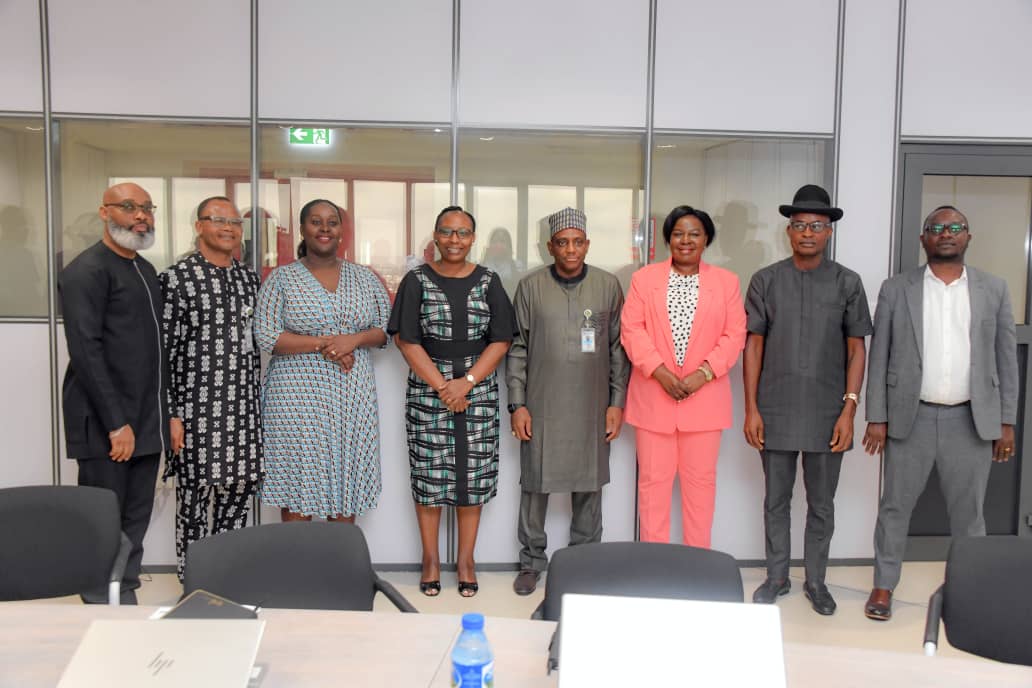
NCDMB shares local content experiences with Uganda energy officials
Key officials of the Uganda National Oil Company (UNOC) on Monday began a working visit to the Nigerian Content Development and Monitoring Board (NCDMB), stating that they were here to learn and that their country stands to gain substantially from Nigeria’s experience in local content development.
Welcoming the four-member UNOC delegation at a meeting at the Nigerian Content Tower, Corporate Headquarters of the NCDMB, Swali, Yenagoa, the Director, Monitoring and Evaluation, Alhaji Abdulmalik Halilu, said the visit would open up new vistas for mutually beneficial collaboration in oil and gas operations between Nigeria and Uganda.
Citing statistics indicative of the resource base of African countries in hydrocarbons, he noted that “the picture looks very good and what we need to do is to work together on how to foster structured partnership.”
According to him, African oil-producing countries cannot achieve enough when they operate in silos, adding that there is a need to approach local content with a pan-African orientation. In that connection, he advanced the idea of a “local content value proposition for Africa,stating that African oil and gas producers would be able to deepen regional integration through value chain optimisation.
Halilu highlighted industry-related challenges that have to be dealt with, noting that there is a need for appropriate technologies to be developed for value addition in oil and gas operationsthrough research and development. Equally noteworthy is the very significant investment required in marine vessels, particularly for Nigeria as the country moves to deep offshore.
“We have to create a financing model to enable African countries to own the required assets,” he told the visiting officials.
Describing the anticipated interactions between the UNOC officials and their NCDMB counterparts during the five-day visit as knowledge exchange, he expressed the hope that there would be exchange programmes between training institutes of both countries, stating that the two organisations have the support of their political leaderships.
In her response, Mrs. Jessica Kyeyune, National Content Specialist of UNOC, thanked the NCDMB Management for the warm reception and hospitality and the wide scope of engagements planned for her team to facilitate adequate exposure to critical aspects of local content implementation and enforcement.
She said her country is a new entrant into oil and gas operations and that they needed to tap from the knowledge of Nigeria’s industry regulator on local content to guide them in the management of the industry back home. “We appreciate what you’ve shared with us, and we look forward to collaboration,” she added.
Mrs. Kyeyuna revealed that there are many projects in the oil and gas sector in Uganda with opportunities and that strategic partnerships as suggested by Alhaji Halilu was imperative.
Presentations by key personnel of NCDMB covered every vital aspect of the Board’s operations. Topics included “Overview of the Structure and Operations of NCDMB,” “Local Content Leading Practice, Supplier Development and Joint Venture Partnerships,” “Incentive Structure for Staff Retention and Expatriates,” “NCDMB Financing Model,” “An Overview of PCAD [Project Certification and Authentication Division],” “Monitoring and Evaluation Operation Framework,” and “Community Content Guidelines.”
A tour of NCDMB’s Nigeria Oil and Gas Park Scheme (NOPaPS) at Emeyal-1, Ogbia Local Government Area, was conducted on Monday to acquaint the visiting officials with an aspect of the Board’s strategy to minimise capital flight by ensuring that equipment, spare parts and tools used in the oil and gas industry are produced locally in Nigeria.
Resource persons were Olubisi Okunola, Manager, Strategy Development and Transformation; Ene Ette, General Manager, Planning, Research and Statistics; Timbiri Augustine, Acting General Manager, Capacity Building; Silas Ajimijaiye, General Manager; Elvis Ogede, Senior Supervisor, PCAD; Collins Obiora Ifeka, Manager, Upstream, Monitoring and Evaluation Department, and Obinna Ezeobi. Coordinator of the event was Tassala Tersugh, General Manager, Midstream, Monitoring and Evaluation Department.
The UNOC, which comprises Mrs. Jessica Kyeyune, Catherine Behangana Tumusima (Chief Human Resources Officer), Edith Tusubira (Human Resources Business Partner), and Ochaki Brian Kabalega (National Content Officer), continues its engagements with NCDMB on Tuesday with a visit to companies and project sites in Port Harcourt, Rivers State, that have benefitted from the Board’s strategic intervention programme.
Uganda launched its drilling of development and production wells at the Kingfisher Development Area in the country’s western region on January 24, 2023. Its first oil output, slated for 2025, is from the Kingfisher oil field, operated by China National Offshore Oil Corporation.




